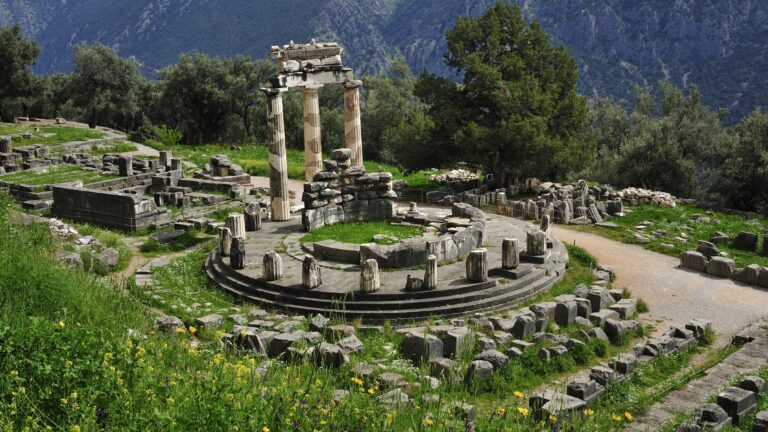The antiquities of ancient Greece have withstood the ravages of time, weather and war, but according to some Greek archaeologists, the country’s cultural treasures now face a new threat: the fallout from the debt crisis that plunged Greece in turmoil. In exchange for tens of billions of dollars in loans to help Greece avoid bankruptcy, the European Union and the International Monetary Fund have demanded deep cuts in public spending, and the Greek Ministry of Culture and Tourism, charged with overseeing thousands of archaeological sites and more than 100 museums with collections of antiquities have not escaped the axe.
According to the Association of Greek Archaeologists, a union of 950 archaeologists working for the federal government, 10 percent of the Culture Ministry’s workforce was fired or forced to retire last November. The association reports that the ministry’s archaeological budget was cut by 35 percent in 2011 and that further reductions are proposed for 2012.
Two years of government-imposed layoffs have halved the number of ministry security guards, forcing some museums to close or reduce their opening hours. Last summer, a shortage of security guards led the National Archaeological Museum of Athens, the country’s premier repository of ancient Greek art, to close many exhibition halls. Staff shortages also led to the closure of the Nemea archaeological site, which includes the ancient Temple of Zeus, on Sundays.
Even more worrying is that, in a country where almost all museums are state-run and crime is on the rise, reductions in security staffing have made priceless antiquities more vulnerable to theft. Two high-profile thefts in the past two months have only intensified fears. In January, three works were stolen from the National Gallery in Athens, including a painting by Pablo Picasso personally gifted by the artist himself to the Greek people in recognition of their resistance to Nazi Germany during World War II. It was the first theft in the museum’s 112-year history. A few weeks later, in Olympia, two armed robbers broke into the Olympic Games Museum – which had reduced security staff – and tied up the only guard on duty before fleeing with 77 priceless bronze objects and pottery.
Another challenge is securing Greece’s 19,000 archaeological sites, attractive targets for illegal treasure hunters, looters and smugglers under the best economic conditions, not to mention the fact that one in five Greek workers is unemployed. Earlier this month, Greek police arrested 44 people suspected of smuggling ancient artifacts out of the country. Authorities have recovered more than 9,500 ancient coins, jewelry, bronze statuettes and wooden icons, some dating back to the 6th century BC. These objects had been discovered during illegal archaeological excavations, mainly in Macedonia and Thessaly.
The Greek newspaper Ta Nea reported that the increase in looting of archaeological sites was such a concern for Michalis Tiverios, a professor of archeology at Aristotelio University, that he successfully lobbied the Greek government to reburies a previously unknown early Christian basilica in Thessaloniki. “Mother Earth is the best protector of our antiquities,” Tiverios told the newspaper. “Let’s leave our antiquities in the ground, which archaeologists discovered in 10,000 AD, when the Greeks and their politicians might show more respect for their history. »
While street protests against austerity measures have received considerable media coverage around the world, budget cuts in the Ministry of Culture have not received as much attention. In response, the Association of Greek Archaeologists launched an international appeal to draw attention to the vulnerability of the country’s ancient objects and oppose any further cuts to the Culture Ministry’s budget.
Archaeologists are trying to dispel the notion that all branches of the Greek government, including the Culture Ministry, have become seriously overburdened and are in need of drastic cuts. They point out that the ministry represents less than 1 percent of the national budget. “The Greek archaeological service is not overloaded and we are not overpaid either,” the association said in a statement. “Further staff cuts would mean that the Ministry of Culture would no longer even be able to cover its basic needs. »
The association has integrated social media into its global campaign, even launching a the Facebook page entitled “I support Greek cultural heritage against IMF and EU budget cuts”. Members are encouraging people to send protest emails to Greece’s culture minister and prime minister, as well as download posters depicting ancient mosaics, paintings and sculptures. The slogan of the posters reads: “Monuments have no voice. They must have yours.


